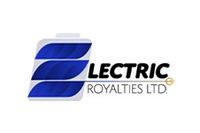Blockchain Trial Takes on Child Labor in Cobalt Supply
Ford and IBM will be working with cobalt producer Huayou Cobalt, as well as chemical engineering company LG Chem and consultancy RCS Global.
American carmaker Ford (NYSE:F) has been revealed to be part of a partnership geared at combating the use of child labor in mining through the use of blockchain technology.
In a Wednesday release from IBM (NYSE:IBM), the band of companies, which includes cobalt producers, processors and end users, said it will be working with IBM’s blockchain platform to track cobalt mined for battery technology all the way from mine to finished product.
Through IBM, the partners said they “will begin with a pilot focused on cobalt and explore the creation of an open, industrywide blockchain platform that could ultimately be used to trace and validate a range of minerals used in consumer products.”
Ford and IBM will be working with cobalt producer Huayou Cobalt (SHA:603799), as well as chemical engineering company LG Chem (KRX:051910) and responsible-sourcing consultancy group RCS Global.
“For this pilot based on a simulated sourcing scenario, cobalt produced at Huayou’s industrial mine site in the Democratic Republic of Congo (DRC) will be traced through the supply chain as it travels from mine and smelter to LG Chem’s cathode plant and battery plant in South Korea, and finally into a Ford plant in the United States,” said IBM in the release.
“An immutable audit trail will be created on the blockchain, which will include corresponding data to provide evidence of the cobalt production from mine to end manufacturer.”
IBM said that while the pilot will be focused on large-scale production, blockchain technology could eventually open up artisanal mines to ethical consumers.
“An important objective of the group is to help increase transparency in artisanal and small-scale mining (ASMs) and enable these operators to sell their raw materials in the global market, while they meet their internationally ratified responsibility requirements,” the release explains.
“The network can help enable ASM operators to partner with due diligence data providers and, ultimately, join a blockchain-based network of validated participants. The pilot will also explore the use of incentives or financial benefits for ASMs and their local communities impacted by mining.”
Increased demand for minerals used in the production of lithium-ion batteries is cited as a motivator for the pilot program, with the companies pointing to a Morgan Stanley (NYSE:MS) report that projects cobalt demand to increase eightfold by 2026, “especially for its use in electric vehicles and consumer devices” like car batteries and consumer devices.
Ethical mining of cobalt is a subject of interest for investors, with the DRC — where 58 percent of the world’s cobalt is mined — at the epicenter of concerns over child labor.
In 2018, the London Metal Exchange took steps to ensure cobalt in its warehouses is not tainted by child labor concerns.
IBM’s announcement says that the blockchain pilot is already underway and is expected to wrap up mid-year, with all participants “validated against responsible sourcing standards developed by the Organization for Economic Cooperation and Development.”
Carmakers around the world are shifting towards a battery future, so spotlights are turning on responsible sourcing. German carmaker Volkswagen (ETR:VOW3) currently expects its suppliers to self report, disclosing the origin of their materials.
The pilot is expected to be extended beyond cobalt to tantalum, tin, tungsten, gold and rare earths.
Don’t forget to follow us @INN_Resource for real-time updates!
Securities Disclosure: I, Scott Tibballs, hold no direct investment interest in any company mentioned in this article.

